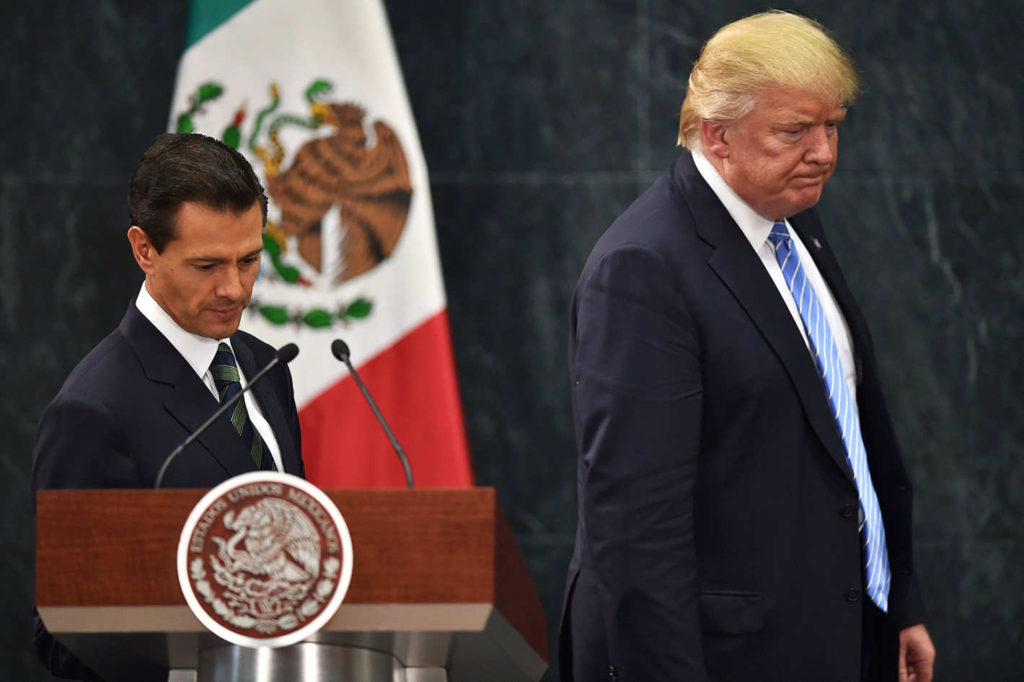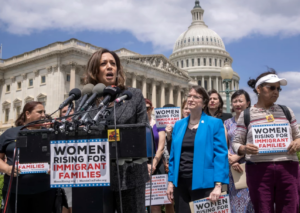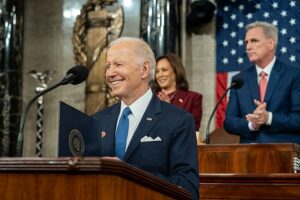Trump Leaves the Neighborhood Bloc Party

Photo courtesy of New York Magazine

The United States may not keep its neighbors behind an iron curtain, but it has certainly asserted regional dominance over the past century. The United States has been Latin America’s biggest trading partner for decades, bolstering its leadership with everything from the multi-billion dollar “Plan Colombia” initiative, to CIA involvement in the overthrow of Chilean President Salvador Allende in 1973. But these days of stewardship may soon be over.
In an effort to bolster security and domestic economic productivity, the United States, led by President Donald Trump, is entering an era of global disengagement. But US policy changes could have the opposite effect, spreading insecurity in a place where Americans may least expect: their backyard.
The factors that have enabled American dominance in the region are shifting under President Trump’s administration. Trump has espoused a clear ideology for the United States in the world: America First. This isolationism may not only cost Uncle Sam his seat at the head of the neighborhood potluck, but also trigger disastrous economic and political ramifications.
Interventionist foreign policy initially fostered US supremacy in the Americas. Using the 1823 Monroe Doctrine as an ideological foundation, the United States intervened in the domestic affairs of Latin American countries throughout the 20th century. Despite some failed interventions, this practice established democratic partnerships while weakening the independence of many Latin American states. In a brazen example, the United States sought to completely control Panama and its critical canal by invading the country and deposing President Manuel Noriega, who went from the US government payroll to a US government prison. While this interventionist strategy was pivotal to establishing and maintaining US hegemony, it no longer defines the US-Latin American relationship.
Trump’s NATO skepticism, call for a southern border wall, and withdrawal from the Trans-Pacific Partnership all demonstrate a policy of disengagement. Even his recent decision to strike a Syrian air base may not signify a meaningful departure from this ideology, but only a swift punishment for the use of chemical weapons. This distractive decision came after a week of record-low approval ratings and in the midst of controversy over his possible Russian connections, suggesting it was more an act of domestic politics than foreign policy.
The America First policy indicates movement away from the US interventionism of the past century. This shift is not unexpected; the American public is largely fed up with entangling itself in the affairs of others. For Trump, disengaging includes moving away from multilateral free trade agreements. While Trump has not yet withdrawn the United States from NAFTA, he promotes a general movement away from such agreements, as exemplified by his withdrawal from the TPP. Decreased engagement in multilateralism could significantly impact US geopolitical influence, as secondary powers like Brazil can use US departure to extend their reach.
Trump’s policies have come at a time when Latin American states have been strengthening ties both amongst themselves and with China. These shifts could negatively impact the US economy, as its regional trade relationships deteriorate.
Relations between the United States and Mexico have suffered the most from Trump’s policy turn. While his inflammatory remarks and wall-building plans have not made him many friends south of the border, proposed changes in trade policy threaten the neighborly and robust diplomatic relationship the two states have previously enjoyed.
Trump is promoting increased domestic manufacturing and proposing high tariffs on Mexican goods. If he succeeds in these efforts, even on a marginal level, US demand for Mexican products will decrease as citizens are forced to pay a premium. Further, Mexico will lose important income from its largest import and export market, and will be forced to seek other markets, likely among its southern neighbors.
This shift may already be underway: the 21st century has seen Mexico dramatically increase its trade with other Latin American states, contributing to greater regional integration. Today, two dominant trade blocs exist in the region, and South American states have developed the Union of South American Nations (“UNASUR”), a regional institution which boasts a European Union-like end goal. Successful integration—spurred by US reticence—could not only foster development and diminish economic and political instability, but give the region a slightly better position in countering US hegemony.
While the United States has begun shifting out of the region, China is on the horizon. “In the last 15 years,” Ted Piccone wrote in his 2016 Brookings report, “China has become the most significant new economic actor in Latin America and the Caribbean.” China is engaging in foreign direct investment and has cultivated trade relationships that have outpaced the United States and established China as many South American countries’ largest trading partner.
As US foreign policy shifts towards reserved or isolationist, its southern neighbors are integrating and another superpower is stepping up to fill the gap. American policymakers have taken US supremacy in Latin America for granted, a position that will be jeopardized by Trump’s proposed policy changes and new grand strategy. To maintain its stature in the coming years, the US must engage in greater multilateral trade and diplomatic relationship building with Latin American states. After all, America’s backyard is no place to leave untended.
Andrew Trudeau is soon to receive a Master’s degree in International Relations from New York University, where he also earned a Bachelor’s degree in International Relations and Spanish. While he currently works in market research consulting in New York City, Andrew has lived in Latin America and written extensively on the region. Andrew is also interested in the intersection of business, economics, and politics.







